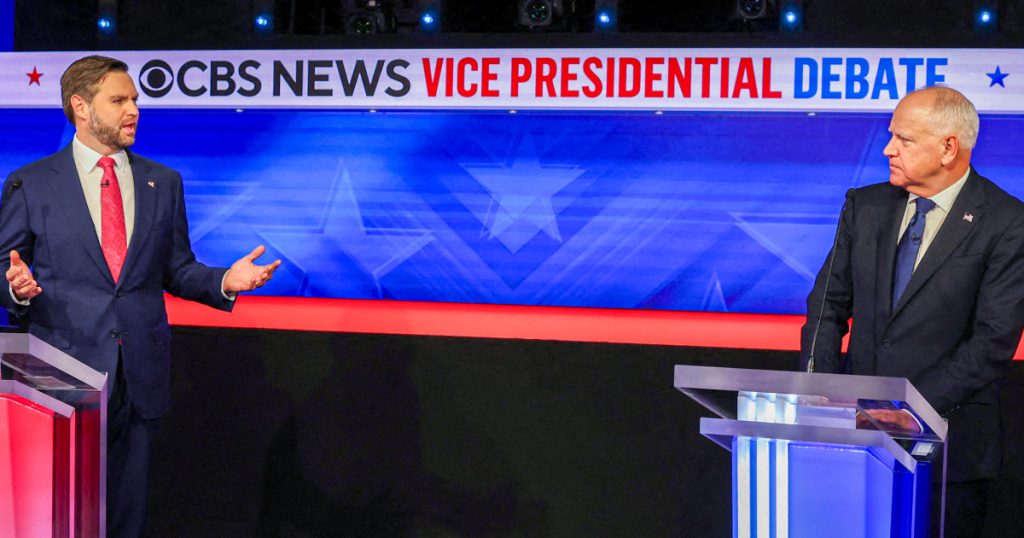During the vice presidential debate, Senator JD Vance of Ohio acknowledged that the Republican Party needed to improve its communication with women on the issue of abortion. Vance shared personal anecdotes about young women he knew who had decided to terminate pregnancies, emphasizing the need for the party to regain the trust of the American people on this issue. He expressed a desire for the Republican Party to be more pro-family and supportive of fertility treatments, acknowledging that different states have varied viewpoints on abortion and suggesting that voters should have a say in making decisions about abortion policies.
Vance’s comments marked a departure from previous statements by President Trump, who has often highlighted the Supreme Court’s potential to overturn Roe v. Wade as something the public overwhelmingly supports. Amidst a heated exchange with Minnesota Governor Tim Walz, Vance insisted that it was important for abortion policies to be determined by individual states to reflect the diversity of opinions across the country. He also criticized Democrats for what he described as a radical pro-abortion stance, accusing Vice President Kamala Harris of wanting to compel medical providers who oppose abortion to perform the procedure.
Following the debate, Trump stated on social media that he would veto a federal abortion ban if it reached his desk, a stance he had been evasive about in recent weeks. Representative Byron Donalds of Florida expressed agreement with Vance’s critique of the Republican Party on abortion, describing it as a personal and private issue for women across the country. Donalds noted that the nation is no longer neatly divided into pro-choice and pro-life camps, especially after the landmark Roe v. Wade decision. Meanwhile, Governor Walz accused Trump and Vance of embracing extreme principles, warning that their policies could lead to barriers to obtaining contraception and fertility treatments.
Walz raised concerns about Trump and Vance potentially instituting a registry of pregnancies, a claim that Vance denied, and criticized their state-by-state approach to abortion as not being sufficient to protect women’s health and rights. He cited a case in Texas where a woman was denied an abortion despite a severe complication at 18 weeks, leading to serious health consequences. Walz expressed support for Harris’ pledge to restore protections under Roe v. Wade, emphasizing the importance of allowing women to make decisions about their own bodies without government interference. He urged people to “mind your own business” when it comes to issues like abortion.
Overall, the vice presidential debate highlighted the deep divide between Republicans and Democrats on the issue of abortion, with Vance and Trump advocating for a state-by-state approach and Walz and Harris calling for federal protections. The discussion underscored the complexities and ethical considerations involved in debates over reproductive rights and pointed to the need for ongoing dialogue and engagement with diverse perspectives on this contentious issue.


